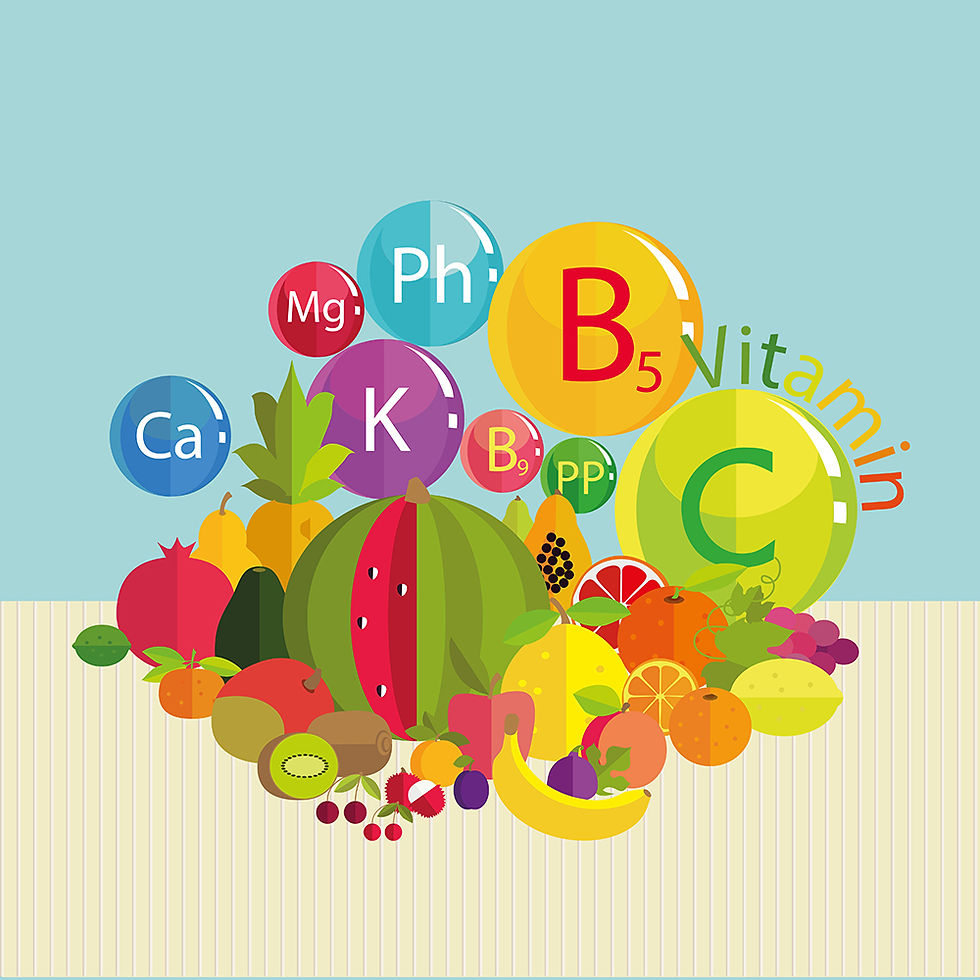Best Eye Vitamins for Astigmatism
- Admin
- Feb 10, 2020
- 4 min read

Having astigmatism sounds pretty intimidating, but really it is a very common problem today. In fact, more people have astigmatism than you may think (and many do not even know it, especially if it is slight). If you have blurry vision or have been diagnosed with astigmatism, the good news is there are many vitamins to help strengthen your eyes and improve your vision!
What Is Astigmatism?
Having astigmatism means that your cornea is shaped irregularly, causing blurred vision. Because the shape of the cornea is not what it is supposed to be, the light that enters the eye is not properly received by the retina. This causes blurry vision, no matter how far away you are from the object. Astigmatism will usually appear with other vision problems, such as nearsightedness or farsightedness.
As far as the causes of astigmatism, no one really knows what brings about this condition. There is some evidence, however, to suggest that astigmatism may be hereditary, as it is usually present in an individual at the time of birth.
Outside Causes of Astigmatism
An injury or surgery that causes scarring of the cornea can be another cause of this condition. There are many studies that show blunt trauma to the eye can induce what is known as irregular astigmatism or trauma-induced astigmatism. One case report found that a boy suffered from ocular trauma and developed astigmatism after being hit in the eye with a soccer ball.
Corneal disease is another possible, but less common, cause of astigmatism. There are many types of corneal disease but one that commonly leads to astigmatism is keratoconus, which has a high incidence rate of 50-230 out of every 100,000 people. It is considered an isolated disease, although there may be some genetic component. One in 10 people with this disease also has a parent with keratoconus.
With keratoconus, the cornea becomes thin and begins to bulge. The irregular shape of the cornea leads to astigmatic blurred vision and can impact each eye differently. Most cases of keratoconus begin at puberty and continue to advance over time. Symptoms begin with mild blurring and distorted vision as well as sensitivity to light and eye redness or swelling.
Changing Vision
As you grow older, your degree of astigmatism can change over time – it might get better, and it might get worse. It depends on your individual eyes, genetic heritage, and how well you take care of your eyes and preserve your vision.
Most people today have some form of astigmatism. For many people, it is so slight that it does not affect their vision, so it often goes unnoticed..
Vitamins for Astigmatism
Did you know you can improve your vision and see more clearly simply by taking vitamins, getting good nutrition, and practicing some eye exercises!
One vitamin that is really good for astigmatism is vitamin A. Some great natural sources for vitamin A include dark green vegetables (such as spinach), sweet potatoes and carrots. Eating a diet rich in these vegetables will ensure you are getting enough vitamin A for your daily needs.
If you are deficient in vitamins that can improve astigmatism, like vitamin A, you should eat some extra servings of the vegetables mentioned or consider taking a vitamin supplement. Supplements can be great options so long as you make sure you are taking the correct serving! Be sure to check with your primary doctor before beginning a vitamin supplement to ensure you are taking the right amount.
Vitamin B is also a great option for those with astigmatism. Look for foods that contain high amounts of protein. If you prefer the vegan option, try avocados and legumes, as they offer a high supply of vitamin B. Or, you can eat salmon, catfish, trout, and many other types of fish or opt for lamb, poultry, beef, eggs, and dairy. All of these foods are great sources of both protein and B vitamins. If you feel you need to, you can also consider taking a supplement.
Are you getting enough citrus in your diet? Vitamin C is another excellent vitamin for those with astigmatism. If you don’t want to take a supplement, be sure to eat lots of oranges, dark green vegetables, peppers, and other fruits, such as strawberries.
Additional Nutrients for Astigmatism
There are a few other nutrients that can be beneficial for those who have astigmatism. Some of the best nutrients to add to your diet if you have astigmatism are zinc, magnesium, and calcium.
You can get high servings of zinc by eating lima beans, oysters, and poultry. Magnesium is found in pumpkin seeds, soybeans, black beans and sunflower seeds. You can find calcium in dairy products like yogurt, cottage cheese, and milk, or from plant sources such as broccoli, spinach, and black-eyed peas.
Other Options to Help with Astigmatism
Be sure to take good care of your eyes, especially when you go outside. Always wear sunglasses and never look directly at the sun. Remember not to squint! Resting your eyes is also a great way to preserve your vision. Be sure to take a break every 10 minutes while working on a computer or looking at other electronic screens.
If your eyes feel tired or you get dizzy, it is probably due to eye strain, so rest up! Following these simple tips and taking the right vitamins can help you overcome your astigmatism safely and naturally!
This post originally appeared on Rebuild Your Vision.

Comments